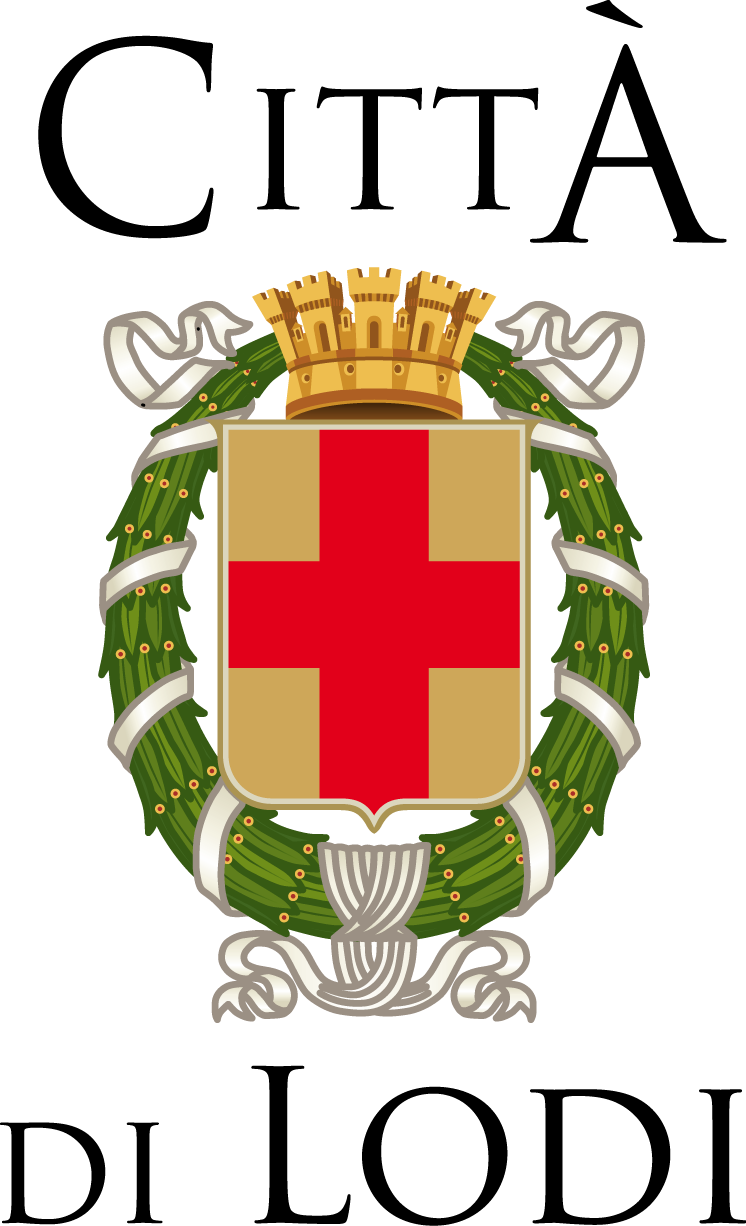Platea Palazzo Galeano is a cultural association born in 2020 in Lodi from the initiative of a group of friends passionate about art and architecture. Its common objective is to support young talents and artistic production.
The founding members are: Claudia Ferrari – president, Laura Ferrari – vice president, Carlo Orsini – artistic director, Luca Bucci – designer, Lorenzo Bucci – social media, and Gianluigi Corsi – treasurer.
Platea finds its home in an essential space overlooking the street, carved out in the premises of the sixteenth-century Palazzo Galeano. It undergoes a restoration and functional redesign aimed at creating a display showcase for free and continuous enjoyment: inaccessible from the outside but always open and available for viewing. It is a form of public art that aims to generate unexpected encounters, presenting itself to anyone passing through the city center—experts, enthusiasts, the curious, or simply distracted passersby.
The name Platea is owed to a generous concession from the artist Marcello Maloberti, whose work "Trionfo dell’Aurora" inaugurated the exhibition space. The cultural project is dedicated to supporting the younger creative generations through collaborations with established artists acting as "guardian deities" and involving high-quality contemporary art galleries.
From the concierge of a historic building that has lost its function, from the demolition of a boundary wall between this space and the public space, from the enthusiasm of a group of friends passionate about contemporary art, the Platea project is born. Platea will be an inaccessible exhibition space, a showcase where container and artwork will be a single medium for continuous exposure, establishing a presence of contemporary art in the urban fabric without the mediation of a place to access or the installation of the artwork as a monument in public space. It will be a visual device related to the window and its genealogy in art history: from Vasari, who considers painting as a window to the world, to its representation in painting from Giotto to Vermeer, to Hitchcock's cinematic transposition in "Rear Window."
Inserting itself into the debate between public art and art for the public, Platea will propose continuous enjoyment of the exhibited works, where the passerby's gaze is unintentionally brought into relation. It will play a role in triggering emotions and reactions, supporting the emotional and social responsibility of generating thought and debate.
Platea as the place of the viewer's gaze: the space that the device generates externally, on the street.
In architectural language, the platea is a type of continuous foundation: a reinforced concrete platform on which the elevation structures rest. The theoretical lines supporting the operation range through the history of contemporary thought: starting from the awareness of the "impossibility of adding anything to the world unless the basic conditions of seeing are established,"1 the considerations of aestheticians at the end of the 19th century, where "beauty does not exist except in the mind of the beholder and only when a sympathetic vibration is established between him and the work,"2 and "beauty is not in the object but in the spectator"3; progressing through the late Duchamp's thought that "art should not be understood through intellect but should be perceived through an emotion similar to sexual attraction - an aesthetic echo (1957)"; reaching Harald Szeeman's conception of a "sensual enjoyment of art," where art is understood as a "flow of energies taking shape through a median individual, thanks to a certain number of factors in the unconscious"; and developing in Georges Didi-Hubermann's thought that evaluates artistic expressions based on the exchange of glances, reciprocity of gazes: "a gaze that looks at me."
The curatorial activity of selecting artists will prioritize the ability to trigger this ideo-motoricity of exhibited works, the potential to develop an aesthetic echo in the observer who, most of the time, casually sees the artwork. This unintentionality of gaze will guide the choice of artists and setups: not a work for the world of contemporary art, but a work to enter the world of contemporary art through a gaze incident.
A conception of the artist as the incarnation of multiplicity and multi-species diversity, as an element capable of triggering unthinkable thoughts, to open up spaces of inquiry on urgent contemporary themes such as coexistence, cooperation, cohabitation, the ability to "generate relationships in a creative and unconventional way outside the established frameworks of family and genetic transmission"4 with the awareness of overcoming the dichotomy between natural and artificial but with the certainty that humans, animals, plants, minerals, and immaterial existences "are a single form of life"5 in the wake of current thought on "totality."



| Cookie | Duration | Description |
|---|---|---|
| cookielawinfo-checkbox-analytics | 11 months | This cookie is set by GDPR Cookie Consent plugin. The cookie is used to store the user consent for the cookies in the category "Analytics". |
| cookielawinfo-checkbox-functional | 11 months | The cookie is set by GDPR cookie consent to record the user consent for the cookies in the category "Functional". |
| cookielawinfo-checkbox-necessary | 11 months | This cookie is set by GDPR Cookie Consent plugin. The cookies is used to store the user consent for the cookies in the category "Necessary". |
| cookielawinfo-checkbox-others | 11 months | This cookie is set by GDPR Cookie Consent plugin. The cookie is used to store the user consent for the cookies in the category "Other. |
| cookielawinfo-checkbox-performance | 11 months | This cookie is set by GDPR Cookie Consent plugin. The cookie is used to store the user consent for the cookies in the category "Performance". |
| viewed_cookie_policy | 11 months | The cookie is set by the GDPR Cookie Consent plugin and is used to store whether or not user has consented to the use of cookies. It does not store any personal data. |
Platea Palazzo Galeano:
Corso Umberto 46, Lodi, 26900
email: info@platea.gallery
whatsapp: +39 351 149 8258